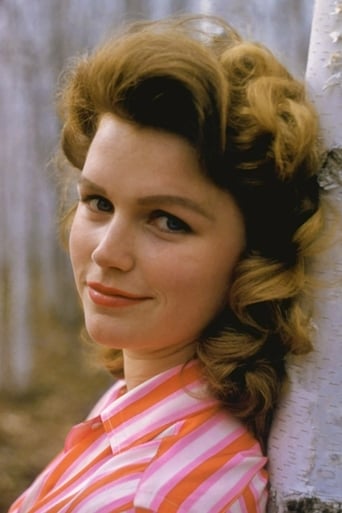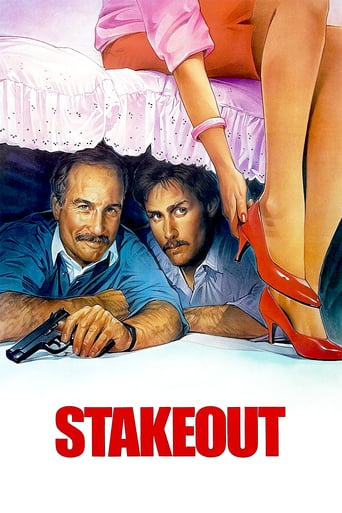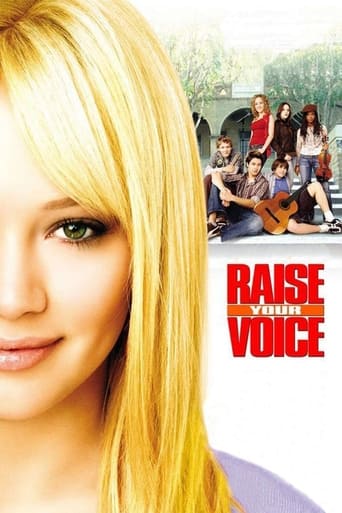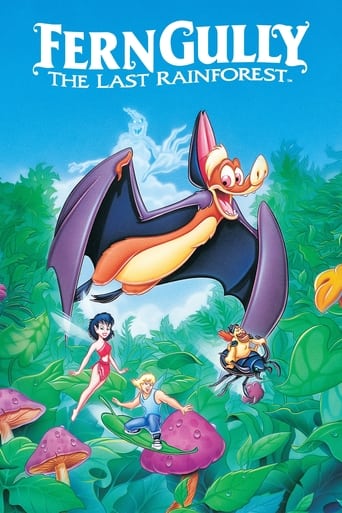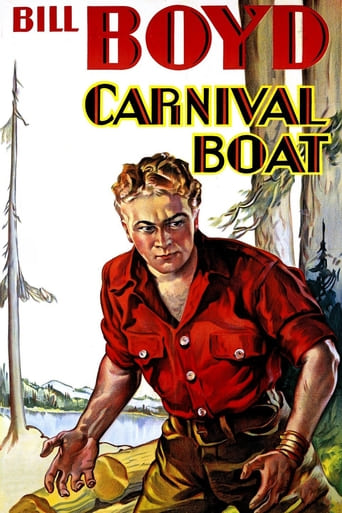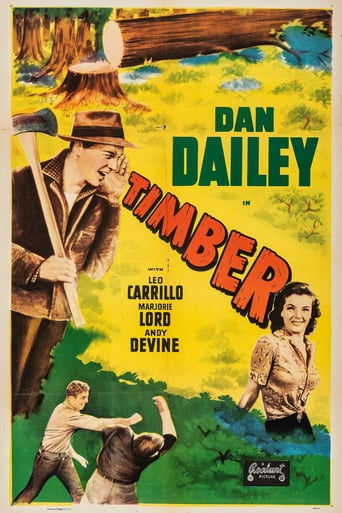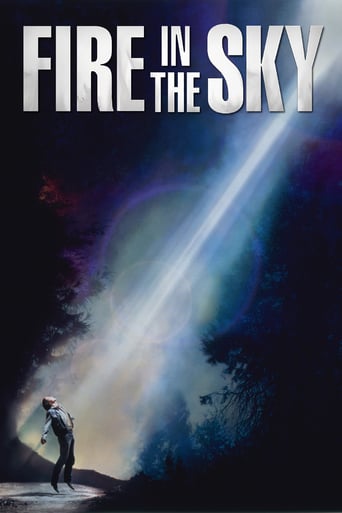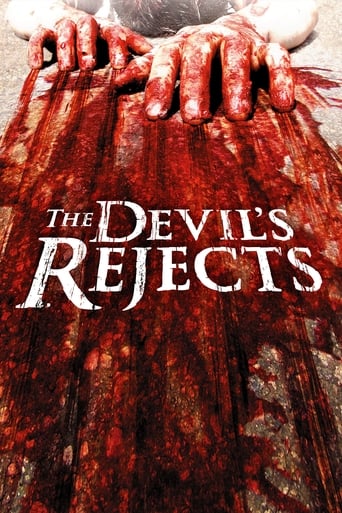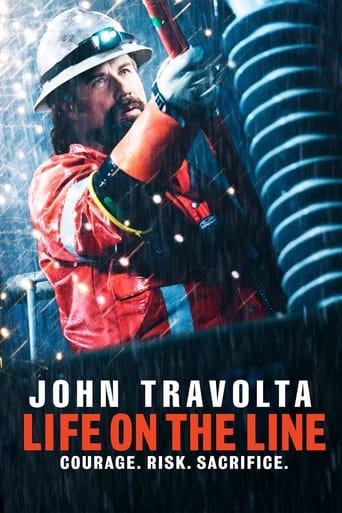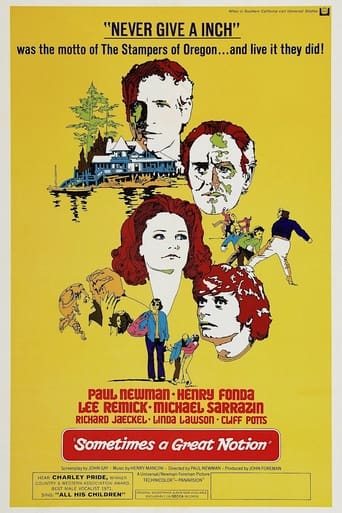
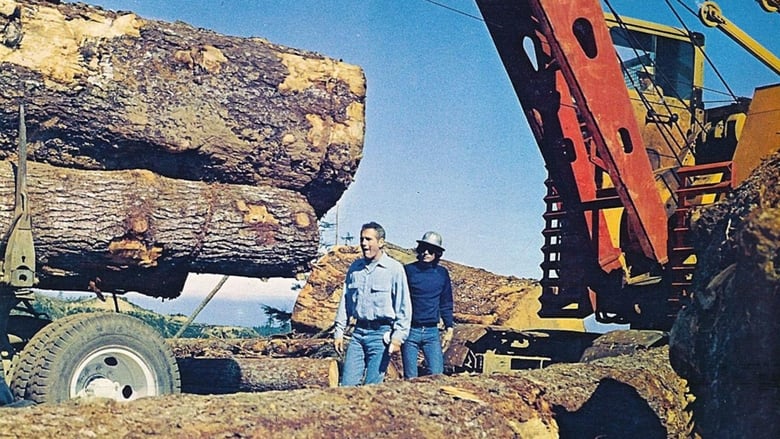
Sometimes a Great Notion (1971)
Hank Stamper and his father, Henry, own and operate the family business by cutting and shipping logs in Oregon. The town is furious when they continue working despite the town going broke and the other loggers go on strike ordering the Stampers to stop, however Hank continues to push his family on cutting more trees. Hank's wife wishes he would stop and hopes that they can spend more time together. When Hank's half brother Leland comes to work for them, more trouble starts.
Watch Trailer
Cast


Similar titles
Reviews
The Age of Commercialism
That was an excellent one.
At first rather annoying in its heavy emphasis on reenactments, this movie ultimately proves fascinating, simply because the complicated, highly dramatic tale it tells still almost defies belief.
It's the kind of movie you'll want to see a second time with someone who hasn't seen it yet, to remember what it was like to watch it for the first time.
Ken Kesey writes a letter to Paul Newman after watching the movie.Dear Paul, I hope you realize that I worked my ass off on this novel.The Stampers were supposed to be larger than life characters who represented rugged American individuality. But your film reduced them to a bunch of ordinary nobodies. The characters of Henry and Hank Stamper deserved more close ups. Instead, you had scenes where they simply occupied the screen with everyone else. Was I supposed to use my imagination? The relationship between Hank and Leland Stamper was very important. It ought to have been foregrounded. I was baffled that you ignored the epic fight between the two of them in the end. What happened to that part, dummy? Their rivalry over the women and their opposing views about life were very interesting. The final scenes where they get together and stick it to the union guys would have been more believable if you had let them fight, thereby exorcising the women.And what about the bar fight scene? Jesus Christ man! Why did you leave out all the best parts of my novel? And I hated the background score. Yes, absolutely hated it. Mancini has produced so many great scores for American cinema. These characters deserved an edgier score. These are tough men, Paul. But the whiny country music thing simply did not work.Best Regards, Ken.(5/10)
Adapted from the 1964 Ken Kesey novel by John Gay ('Soldier Blue'), 'Sometimes a Great Notion' follows the struggles of the Stampers, a family of fiercely independent loggers on Oregon's central coast who are fighting to remain working in the midst of a local strike against a large timber corporation. Henry Fonda plays Henry Stamper, the ferocious family patriarch; Paul Newman (who also directed the film after Richard A. Colla left the project) is Henry, Jr. ("Hank"), the irascible eldest son; Richard Jaeckel is Joe Ben, the stolid second son; Michael Sarrazin is Leland, the prodigal third son; Lee Remick is (miscast as) Hank's neglected wife, Viv. As 'New York Times' film critic Vincent Canby wittily pointed out in a contemporary review, 'Sometimes a Great Notion' is "an example of a genre of action film that flourished in the 1930's in movies about tuna fisherman, bush pilots, high-wire repairmen and just about any physical pursuit you can think of with the possible exception of toll-taking, which (except on some thruways) lacks the necessary amount of danger." 'Variety' characterized the film as "a sort of contemporary 'western' in the timber territory." Indeed, 'Sometimes a Great Notion' might best be thought of as an extended episode of Bonanza with chainsaws; the emphasis is on old fashion family solidarity, rugged Americanism, and hyper-masculine prowess in a wilderness setting. Implicitly anti-union and anti-feminist, book and film express a reactionary, anachronistic ideology that augurs the retrogressive Age of Reagan still eight years away when it was released. Despite its unsavory politics, 'Sometimes a Great Notion' is an entertaining film with some highly memorable set pieces, e.g., Newman's Hank Stamper dismantling a union official's desk with a chainsaw; Jaeckel's Joe Ben pinned under a log and slowly drowning in a rising river, with Hank powerless to help; and the final, resounding image: Fonda's severed arm—middle finger extended—strapped to the Stampers' boat mast as a standard of everlasting defiance. Incidentally, book and film derive their titles from the 1936 Leadbelly song, "Goodnight Irene": Sometimes I live in the country/Sometimes I live in the town/Sometimes I get a great notion/To jump in the river and drown." 'Sometimes a Great Notion' was the first movie shown on HBO when it began broadcasting on November 8, 1972. VHS (1998).
Ken Kesey wrote "One Flew Over the Cuckoo's Nest" in 1962, a novel which would later be adapted into a memorable film. Kesey's second novel, "Sometimes a Great Notion", would be published in 1964. Today some regard it as the quintessential Great American Novel. Paul Newman would direct an adaptation in 1971.Titled "Never Give An Inch" in some countries, Newman's adaptation starred Henry Fonda and Newman himself as heads of the Stamper family, a clan of wealthy Oregon loggers. They're rugged individualists, hard workers, deeply conservative and dislike hippies, communists, long haired big-city-folk and homosexuals. They also want to keep logging, much to the chagrin of other striking, unionising workers.Kesey's tale offered a perspective seldom found in art. Whilst most tales of its ilk focus on poor union workers who are persecuted by big, mean capitalists, "Sometimes a Great Notion" does the opposite. We're positioned inside the Stamper gang, who are habitually hounded by the unionists. Of course Kesey and Newman don't romanticise the Stampers – they're mockingly portrayed – but such a perspective nevertheless forces us to accept a certain logic. The Stampers are perfectly "rational" in acting in their own self-interests and in ignoring how their actions affect their wider community. Within the narrow confines of capitalist logic, their actions are wholly sound. What Kesey then does, though, is slowly question this logic and then outright advocate its rejection. By his tale's end, the Stamper family is thus violently torn apart precisely by its individualism, its rejection of the communal and its pursuit of individual gain. With no one to help them, various Stamper members then die in various absurd scenarios. Those who do survive, however, become even more entrenched in their views. We see this at the end of Newman's film, his character shrugging off the loss of his brother and father and becoming, instead, a kind of militant, super capitalist.Newman's film is much smaller than Kesey's novel, and ignores most of the novel's complexities and nuances. Newman is also a weak visualist, though the film's many logging sequences are excellent, perhaps because they were filled by a second unit crew. The film features an audacious, ten-or-so minute long "drowning" sequence.7.9/10 – Very interesting material, simplistically handled. Worth one viewing.
I also vividly remember this movie, and would love to see it again. The scene with Richard Jaekel and the logging accident is unbelievable. There are many other memorable scenes. I wonder why it is not on DVD? I searched Netflix, and it isn't there. I guess I will just have to wait for it to come around on cable! Or do they only show movies that have made it to DVD on cable? With so many great actors, an excellent story (Ken Kesey) and memorable performances, there's no reason for this to languish in obscurity. I would like to hear some other opinions. It's the kind of movie (at least for me) that you remember forever, so I'm hoping some others remember it as well and can give their opinions.




